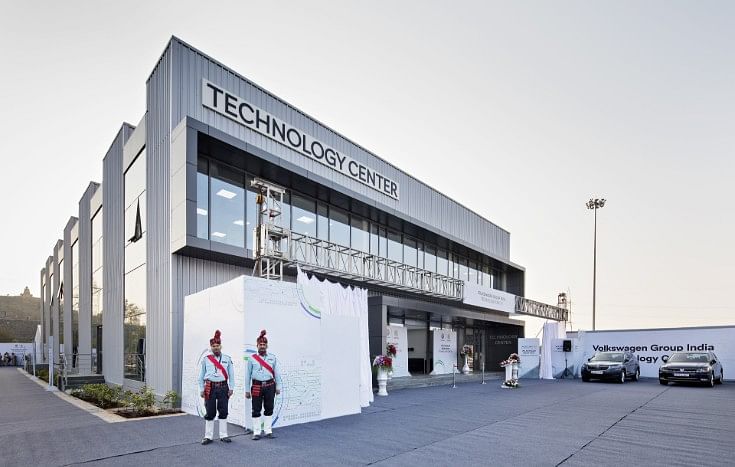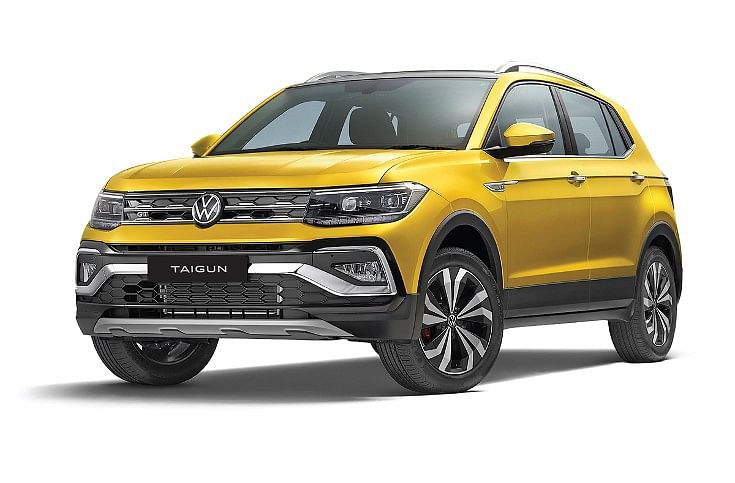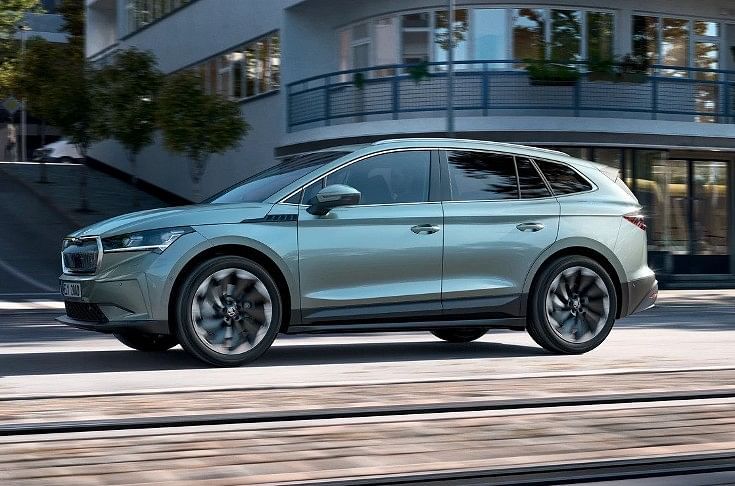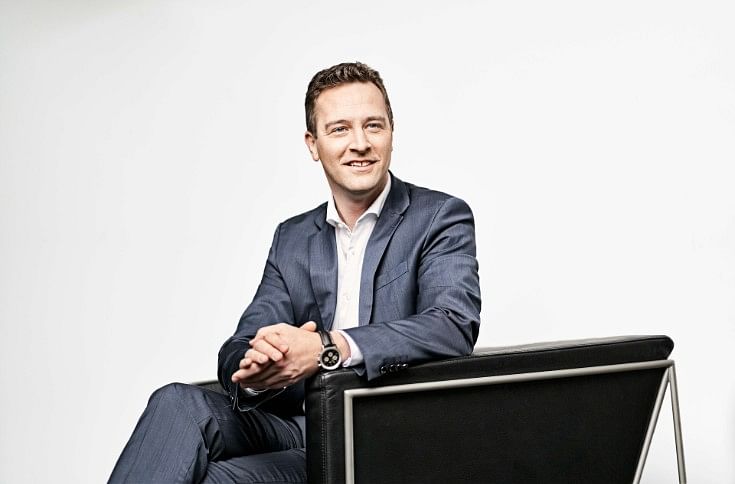Skoda plans larger global role for India
Christian Schenk, Board Member for Finance and IT, says India is poised to contribute more to global projects.
When Christian Schenk tells you that there could be a crisis happening anytime “on the dimensions you haven't thought of before”, it is based on firsthand experience.
The Skoda Auto Board Member for Finance and IT was actually in Russia just a fortnight before it declared war on Ukraine and the world has been in a tizzy since then. During his visit, there were discussions with colleagues and nobody could have imagined what was due to follow.
“I remember telling my kids that they would not face situations like this in their generation,” says Schenk. This time around, the war is actually happening closer home given the Czech Republic’s proximity to Russia both in terms of geography and history.
Yet, he is stoic enough to add that one has to accept “the reality of what is happening worldwide”. The world has been plunging into one crisis after another starting with the pandemic two years ago which still continues to have powerful nations like China on the back foot.
“When Covid broke out, my first reaction was that this is something extraordinary. This is the time you need to communicate a lot and get everyone on board. It is a new situation where you must listen, act and make decisions instead of just standing there too shocked and stunned to react,” says Schenk.
The conversation is happening at a hotel in Mumbai’s busy Juhu area characterised by heavy traffic and hordes of people thronging the beach. India has, like the rest of the world, faced the onslaught of the pandemic but life has to go on.
Schenk clearly subscribes to this thought process too since there have been other headwinds beyond Covid like the present war in Ukraine, the chip crisis and so on. “There will be uncertainty and changes happening all the time. The world will not be the same,” he says.
It is during these difficult times that leadership plays a big role, “It is important to keep talking to people, listen to them and take bold decisions. The next crisis might come anytime and we must accept that this is the new normal,” continues Schenk.
Skoda’s team in India also rose to the challenge and the India 2,0 programme with Volkswagen was underway during the pandemic when lockdowns were the order of the day. Despite this, the teams at Skoda Auto Volkswagen India continued undeterred while their colleagues in Germany and the Czech Republic helped them by way of video conferencing. Today, four products — two each from Skoda and VW — have been launched and market response has been more than encouraging thus far.

Schenk, who was recently made Chairman of Skoda Auto Volkswagen India as part of a leadership reshuffle, reiterates that for any company to be on top of a difficult situation, it is important to have in place the right products and a good team.
“Companies are about people by the end of the day and good teams work well under pressure. Everyone is successful when the going is good but when it comes to a crisis, it is all about trust, taking quick decisions and going in one direction instead of ten different ways.”
Under stress, he continues, good teams get “even more together” and find a solution where everyone is focused in one direction. “For me, it is about the style of leadership, teamwork, having a stable foundation, learning from past mistakes as in India where we now deliver what customers here want,” says Schenk.
Lead role
This also explains why the VW group decided to give the lead role to Skoda in the India 2.0 initiative because when it comes to “cost-efficient and functional vehicles which have all these ingredients, it is Skoda who should be doing it”. The lessons learnt from India 1.0, when things went completely awry over the last many years, have clearly helped and the job on hand now is to grow India 2.0 and develop the country as a global hub.
“The key is to go step-by-step with a good team, continue with the strategy and if it is not working, shift gears but with everyone onboard,” says Schenk. This is unlike the past where VW, Skoda and brands such as Audi and Porsche were in different directions. As he explains, many companies have fallen by the wayside because they didn't know where to go or went in different paths. “You need to have one goal which is common”.

Today, the good news is that the T-Cross (retailed as the Taigun in India) built on the MQB-AO-IN platform was recently shipped out from here to Mexico. This encapsulates the objective of a global model and as Schenk says, it is not about Mexico “building Mexican cars” but leveraging a good platform here in India which can go to Mexico. Likewise, Brazilian cars can head out to other parts of the world too.
With Skoda now poised to take the whole MQB-AO platform global, it only puts in perspective how India stands out as a shining example of “how we did it”. Since the initiative here has turned out to be successful, the VW group has given Skoda the “further task” to develop MQB-AO worldwide.
Going forward, there could be cars produced in Brazil where Indian know-how and experience will play an important role. “If you have a good team, you can work across brands, continents and that is the strength of VW,’ says Schenk.
Joint platform strategy
According to him, if “you get a platform here which is cost-effective to survive in India”, you can survive anywhere else because it is a pretty difficult market. India was in a way a triumph of sorts for VW and Skoda and the joint platform strategy showed that it was entirely possible to build a car with great quality, design and functionality while keeping the DNA and genes of either brand intact. The India success story thus far translates into a good reference point for other regions.
Schenk also believes that it is important for Skoda and VW to maintain their differentiation in terms of styling and design while also ensuring exclusive strategies for each of the brands. “One is maybe a bit more advanced on EVs and the other is more on ICE (internal combustion engine).” With MQB-AO, there is a good platform in place for both brands in the ICE business — “and ICE will be around for a longer time. Gasoline engines will not be dead in two days”.
At the same time, it is as critical to participate in the EV race where VW will logically remain at the forefront. It is in this backdrop that “we can’t let India completely down”. The ramping up will happen sometime in the future with “different kinds of amplitudes/acceleration”.
Europe will kick off the electrification journey earlier and VW might decide to start earlier than Skoda… “or maybe doing a bit more on EVs with Skoda more on ICE”. As he puts it, “that is perfectly fine because both of us need to find different customer groups, different markets and so on”.
Brand building effort

The Skoda Enyaq iV all-electric SUV is soon coming for testing to India and the message is to convey the carmaker’s competencies in electrification. It will be imported and is part of the brand building effort for the Czech carmaker. Skoda will then gauge market feedback to the Enyaq and then take one thing at a time. There is no reason to hurry since electric will need the supporting ecosystem to be in place in terms of charging infrastructure and so on.
Coming back to India 2.0, Schenk reiterates that neither VW nor Skoda could have done the job on its own since the need of the hour was scale especially with such massive investments earmarked for the programme. To put all the money into one basket and call it Skoda would not have worked. “We also needed exports.” While VW had it for Mexico, Skoda had nothing.
“We must use scale in the group and also for (supplying) common parts in the rest of the world,” adds Schenk. Scale and commonality of platforms will become even more critical when it comes to a more aggressive digital play since putting software in a car is much easier than a battery or engine. Customers may well change car software every three months…”imagine the investments to be made if each brand had to develop this individually” — it becomes so much easier spreading this across platforms.
In India, he continues, it is as important to work in tandem for the other brands be it Audi, Porsche and Lamborghini where synergies in R&D can be contemplated. “As a group, it is important to have consistency and not go in all directions.”
The other strength India possesses lies in its huge software pool of engineers and this is particularly important to the VW group since the future of the automobile lies in software and IT. “This is where we need to use our branding…we are selling cars in India and can get people to work for VW in IT. People would love to work for a company which makes nice cars that are visible on the roads,” says Schenk.
India, he continues, is absolutely vital for R&D and other functions for VW where it has a big role to play. It is more than likely that teams from India will work with colleagues in Brazil and the Czech Republic on a slew of projects. “It is about tapping the skills of young engineers and software developers worldwide,” says Schenk.
He also reaffirms that this is not about cost savings where manpower is perceived to be cheap in India — he actually bristles at the suggestion — but boils down to domain knowledge. For instance, it is difficult to find good coders in Germany because there is just not enough going around. On the contrary, India offers solid talent in software coding and, along with other regions, can build up a diversity template for the future which can come up with good ideas. “Different cultures enrich your life, knowledge and products,” explains Schenk.
While stating that India can play a huge role in digitalisation and software, he drives home the point that it is not possible to do everything in every country. “There is always a competitive advantage where some are better than others in areas like raw materials, services, manufacturing etc.”
By the end of the day, all these efforts are focused on sustainable mobility in the near future. “I want my kids to have a clean future. We need big resources in the car industry to improve the combustion engine and get pollution out of the system,” he says. This would have been inconceivable had diesel continued its relentless march.
Global divorce

Schenk is quite concerned that the war in Ukraine could see some sort of a global divorce which does not augur well for the supply chain or in keeping inflation in check. “We are one world which is moving fast and each country’s contribution is vital. There needs to be a purpose in life especially when it involves the planet,” he says.
According to him, both mobility and environment can balance out each other well and it is here that all the “bright engineers in Germany and India” need to work on the right products. “If we work against each other, there will be different problems,” he cautions.
It is important “to move with the world and you are stuck if you build borders around yourself”. By doing so, there is no one leaving and no one coming in and “you don't improve”.
Schenk believes that the global industry is going through its share of turmoil and challenges with the changing mobility landscape led by the battery revolution. He was within the VW ecosystem when the diesel scam hit the headlines seven years ago and the automotive world went into a tailspin.
To that extent, he laughs, crisis management is par for the course from his point of view and the good part is that it has spawned a massive transformation and new momentum. Within VW, things that people were used to doing for a long time were quickly jettisoned. A predominantly diesel company has now moved quickly to electric while digitalisation is the next revolution.
“So the auto industry has external challenges like what is happening in Ukraine as well as internal issues to handle. Life is full of challenges so it is best to face them and embrace them. Take something good out of every crisis, don't cry, carry people along with you and don't be afraid,” reasons Schenk.
According to him, transformation is a chance to move forward and this is where “energy and optimism” will help in keeping things moving. In the case of VW, it could have taken the easier route and given up after the diesel mess but the company realised that it needed to change and adopt a new strategy. It was an important lesson which helped VW transform quickly.
“When the next crisis comes, we will try to get through it as well. The key is to take it head on…the world looks different after a crisis and we need to be on the good side!” says Schenk. Sure, it is not as if something like the Ukraine war does not pose any challenges but the way to get ahead is through teamwork.
“This is a diverse organisation. You need a lot of specialists who know how to run a supply chain and who have experienced such challenges before…not on the lines of what is happening right now but similar ones and find unconventional solutions,” he adds. In the case of Skoda Auto, it was an experienced professional in charge of purchasing who played a big role in previous crises since he knew what it took to tackle supply chain issues.
“During times like this, we seek counsel from people like him who can help with good and fast solutions…the right teams take the decisions for others to follow. You do not need to have three people operating in different directions but, instead, follow one strategy and accept the reality that the unknown is here to stay,” elaborates Schenk.
He is candid enough to admit that the last two to three years have only convinced him that “as a finance professional, you cannot predict the future long term” but just three months at best. This is simply because something new is happening all the time.
These are the times when “you have to be flexible in what you do” while not taking anything for granted. People cannot remain complacent till everything blows over. On the contrary, it is important to be vigilant and this is where working in a group like VW is extremely helpful since “you have people in China, South America, the US and so on”. There are different brands with tons of experience within the group to help out.
When the Covid outbreak was first reported in China, the company was perhaps better prepared to appreciate the gravity of the situation since it has huge operations in the country. By the time the pandemic reached Europe, there was a greater sense of awareness within the VW ecosystem that this was more than a regular flu.
Coming back to India, Schenk says it is vital to deliver now on investments made. “These guys have done a tremendous job in launching cars during the pandemic without people coming in from Germany and the Czech Republic to help them. Today, customers are happy as also dealerships and we have to keep the momentum going.”
From his point of view, the most important aspect is not to be a “one-hit wonder” but a lasting story where Skoda and VW are seen as successful products. The India region was languishing for many years and this programme was launched to set right this drawback.
We have the people and products — lessons have been learnt and those within the company are confident and enthusiastic,” says a visibly pleased Schenk. The road ahead will see India play a far more active global role especially when it means leveraging its competencies in software and IT.
The feature was first published in Autocar Professional's April 15, 2022 issue.
Also read
Thomas Schafer: ‘India 2.5 is an initial idea but maybe it has a 3.0 and a 4.0’
RELATED ARTICLES
RSB Group Prepares for Hyper-Growth: New Markets, Tech and Mission ₹10,000 Cr
From a small workshop in Jamshedpur to an engineering group with global reach, RSB Transmissions is preparing for its mo...
Beyond Helmets: NeoKavach Wants to Make Rider Airbags India’s Next Safety Habit
As premium motorcycles proliferate and riding culture evolves, an Indo-French venture is betting that wearable airbags, ...
Inside Mahindra Last Mile Mobility’s Rs 500 Crore Modular Platform Strategy
Mahindra Last Mile Mobility has launched the UDO, an electric three-wheeler built on a new Rs 500-crore modular platform...






 12 Apr 2022
12 Apr 2022
 11643 Views
11643 Views





 Darshan Nakhwa
Darshan Nakhwa



 Shahkar Abidi
Shahkar Abidi

